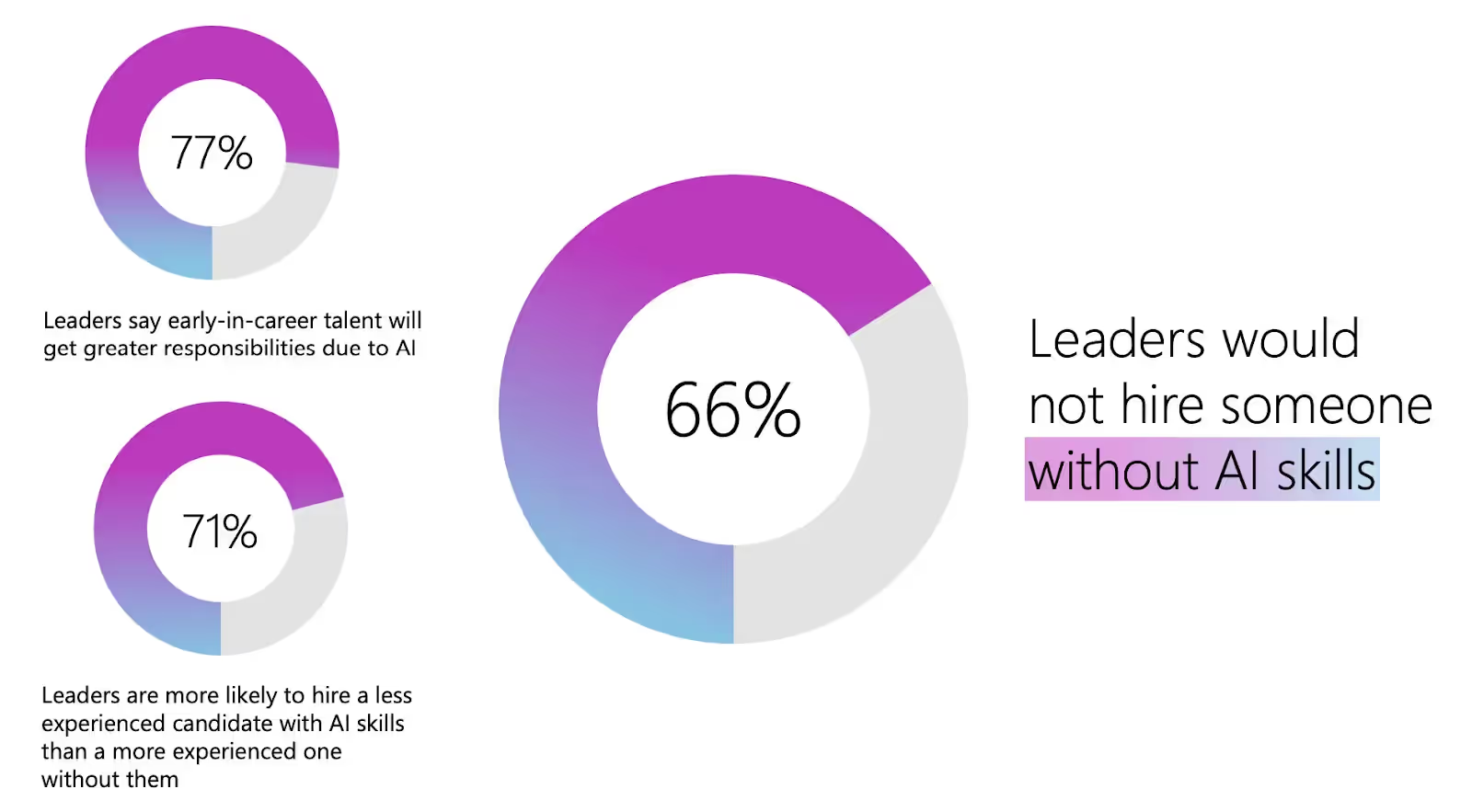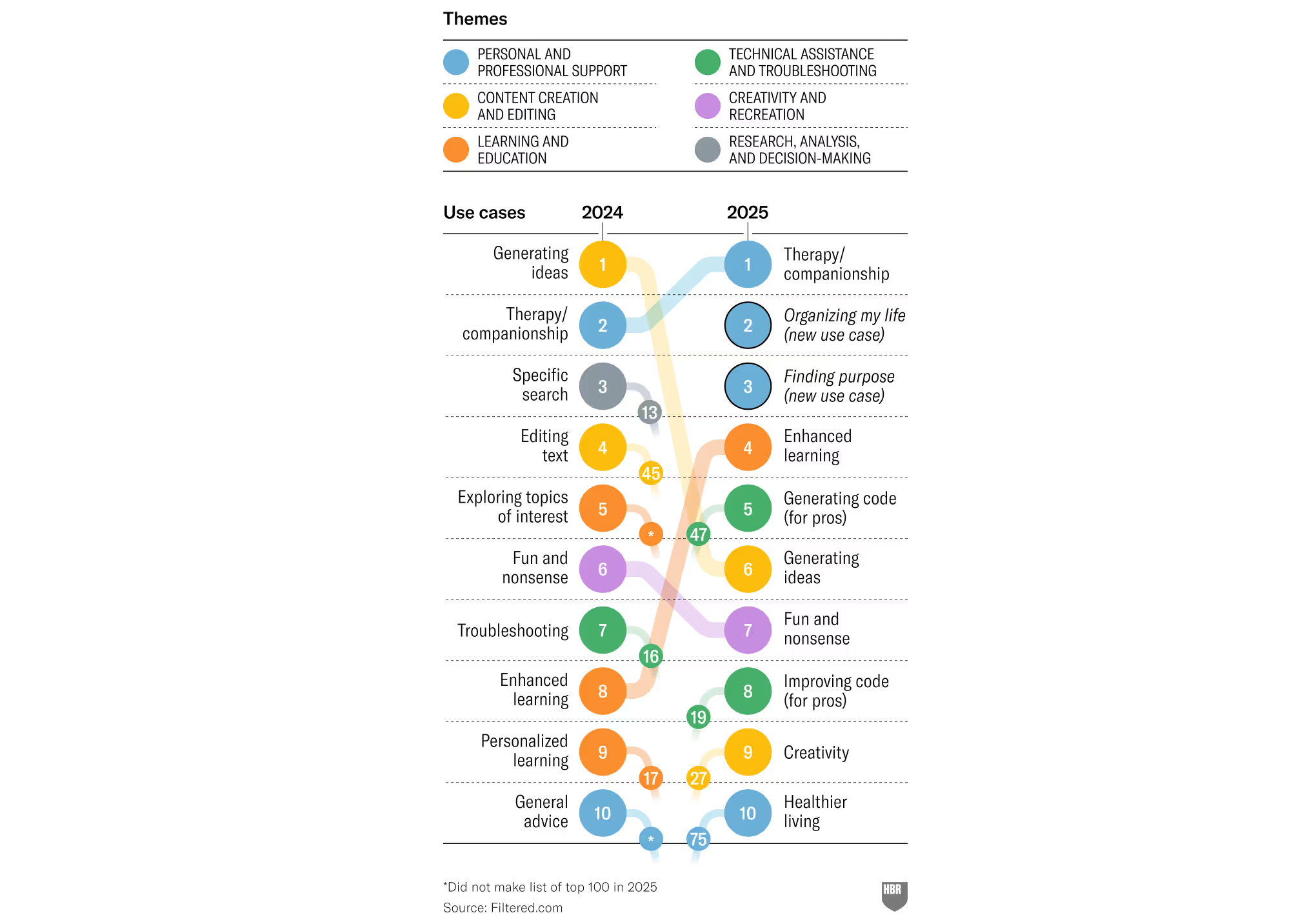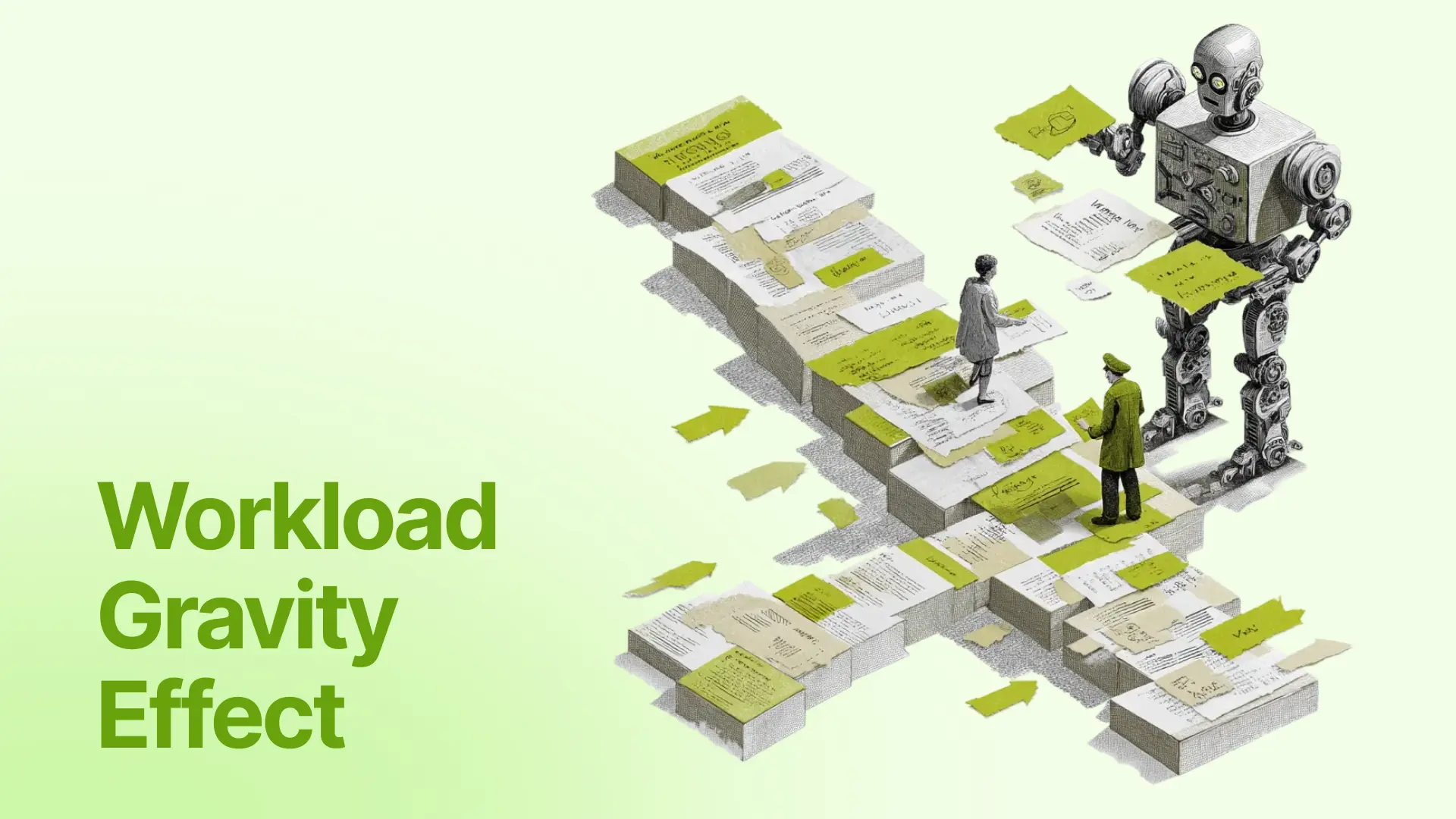
Using ChatGPT Should Be a Compliment, Not an Insult
As I wrote in mid-2024, AI is becoming a crucial skill.
At that point, already 66% of leaders said they wouldn’t hire someone without AI skills.
The same Microsoft study showed that 71% of respondents prefer to hire a less experienced candidate with AI skills over a more experienced candidate without them.

Fast-forward just six months, and 47% of hiring managers see it as the number one skill for candidates to have.
Yesterday, Shopify CEO Tobi Lutke even said that “AI is now a baseline expectation” and warned employees not to request additional headcount before proving that AI can’t do the work. (Wow!)
I’ve heard from our Lead with AI graduates that, with all things being equal, they would vastly prefer a SuperWorker with a team of AI assistants over a ‘regular’ employee.
Makes sense.
Companies with SuperWorkers are smaller, leaner, and more competitive.
You Have ‘Secret Cyborgs’
However, this contrasts with another common finding: over half of employees use AI in secret.
AI professor Ethan Mollick calls these people ‘Secret Cyborgs.’
They are using AI, but not openly.
I recently shared about one such closeted AI user.
“For a long time, I was in the AI closet. I didn’t want people to know that I used ChatGPT. But now, I’m sharing it for anyone to hear: I collaborate with AI to improve the quality of my work.”
So why does this behavior occur? Mollick has a good list of reasons:
- They got a scary, vague warning about using AI. Unsure what counts as "wrong use," they stay quiet.
- Even if not punished, they won’t be rewarded for using AI. Why give away their edge?
- They’re praised for sharp emails and fast code, and worry that revealing the AI behind it would lower others’ respect or perhaps worse: more work.
- They know companies use productivity gains to justify layoffs. If AI helps too much, someone might go.
- They want to share their AI tricks, but have no safe or trusted way to do it.
Working with AI is a superpower, but for organizations to benefit, there’s one thing that has to change:
“You’re using ChatGPT” should be a compliment, not an insult.
Based on what I’ve heard from Lead with AI graduates, here’s how you can get there:








